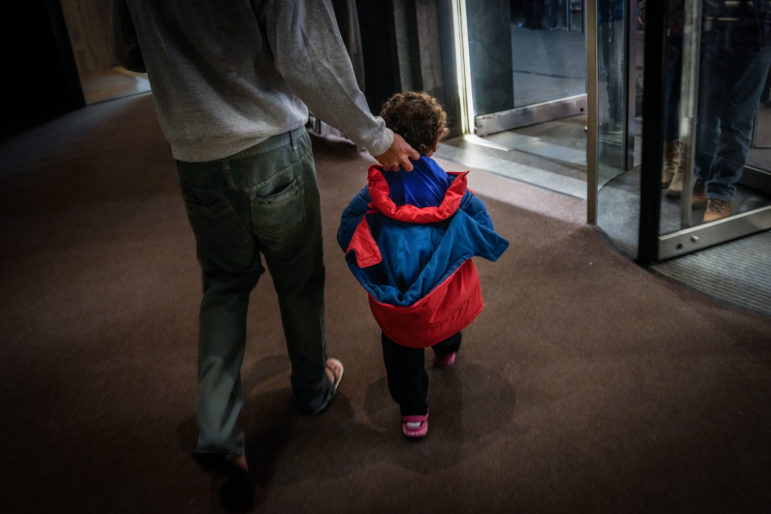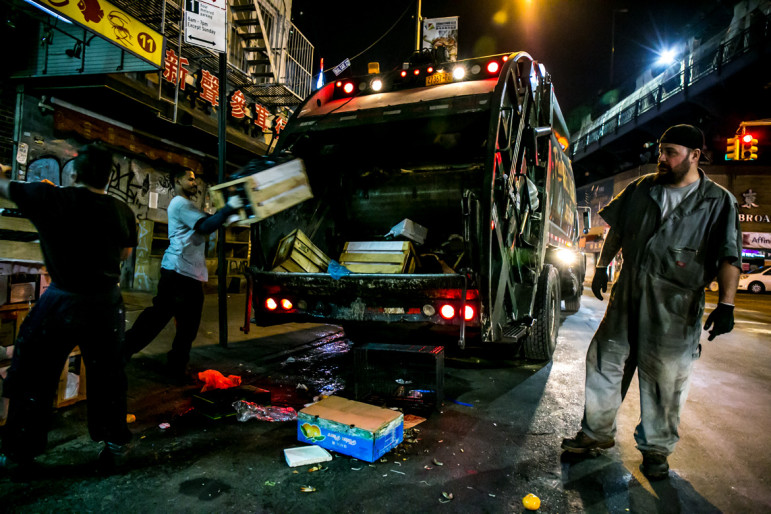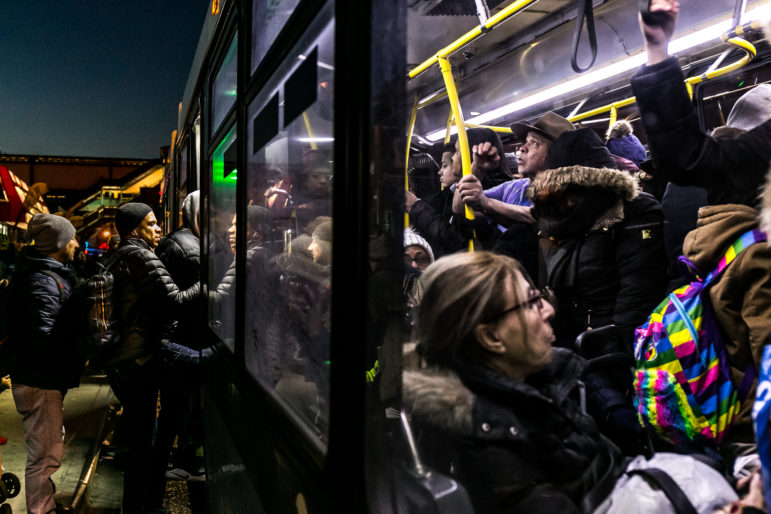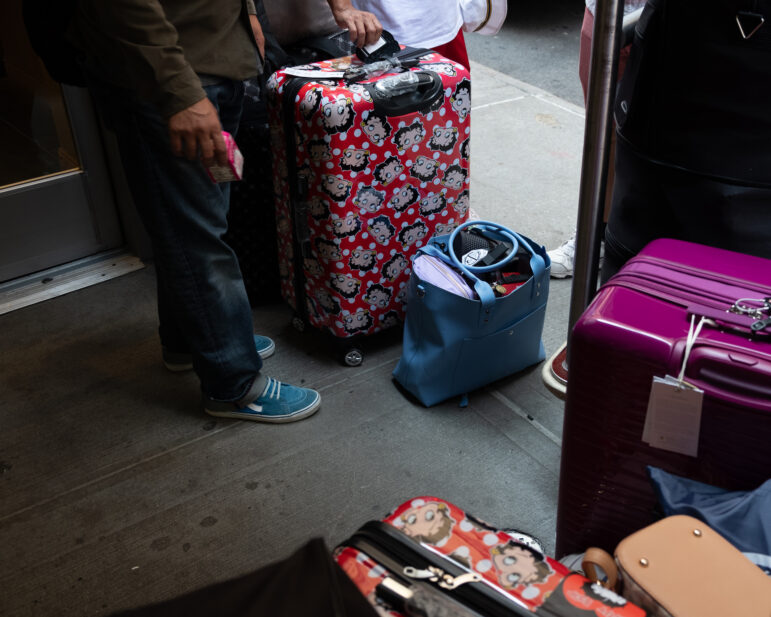“It is time for the governor and the legislature to step up to the plate and start acting like a partner to Mayor Eric Adams instead of a spectator. In fact, in recent years the state has been reducing its support for the city’s shelter system by not keeping up with its financial obligation.”

Michael Appleton/Mayoral Photography Office
The city has opened a Humanitarian Emergency Response and Relief Center at a hotel in Midtown Manhattan for asylum seekers.Summer has always been a challenging time for the city’s homeless shelter system, as the number of families with children will often enter the system at a rate nearly 30 percent higher than normal. However, this summer has been particularly challenging with more than 18,000 migrants arriving in the city in recent months, including those sent by Texas Gov. Greg Abbott. Leaving aside the particularly onerous and irresponsible actions of Texas, we must now deal with this new influx of people seeking shelter.
It appears that the city’s plan to house some 500 adults in tents at Randall’s Island is becoming a reality. In addition, more than 45 emergency hotels were recently opened, which is a great accomplishment considering the speed of their opening, but still may not satisfy the need for more room and services for migrant families.
It is time to think outside the shelter when addressing this problem. First of all, it should be noted that the much-publicized Right to Shelter Law does not only apply to the city but to the entire state. It is time for the governor and the legislature to step up to the plate and start acting like a partner to Mayor Eric Adams instead of a spectator. In fact, in recent years the state has been reducing its support for the city’s shelter system by not keeping up with its financial obligation.
Nothing paints a better picture of how state government has abandoned the city than how the shelters are funded. As the cost of New York City Department of Homeless Services shelters rose by nearly $1.2 billion between fiscal years 2011 and 2021, the city was left to pick up 95 percent of the increase for single adult shelters and 32 percent of the increase for family shelters, according to Coalition for the Homeless, while the state covered a mere 4 percent of the additional cost for single adult shelters and 7 percent for family shelters.
While the mayor begs the federal government for more support, he should first urge our partners in Albany to increase their support to more realistic levels. In addition to financial support, the state should offer to provide lodging to migrant families in other parts of the state. Why not transfer some migrants to hotels in Albany, Syracuse, Yonkers, Buffalo etc. In fact, I think Albany should be on the top of this list so the governor and legislature will be able to see first hand the magnitude of this problem.
The federal government should also share in the resolution. Texas should not be putting people on buses, but maybe the federal government should be transferring these migrants from small border towns to a more friendly environment in nearby states. I am sure there are some underutilized Army bases within a reasonable bus ride that could accommodate these families and provide them with the necessities of life and give them legal assistance.
In fact, why not hold asylum hearings at these locations to make it easier for everyone? In addition, the federal government, which pays 50 percent of the cost for sheltering families, but none for sheltering single adults, must acknowledge that this is a national problem and start paying at least half of the cost for singles.
The city should also create more space within its shelters to accommodate the normal summer surge of families and migrants by increasing the number of families that move out into permanent housing. The value of a city housing voucher has been greatly increased and additional Section 8 vouchers are now available so that there is little excuse to not be moving clients into their own apartments. However, the average length of stay for families with children is still over one year and for adult families without children, it is an outrageous two years.
The administration has to provide shelter providers with a standard as to how many families should be moved out into permanent housing on a quarterly basis. Providers that don’t meet that standard will be given a warning, and if they fail the next quarter to meet their goal then they should have their contracts reduced.
Wringing our hands and cursing Texas will not solve this problem; it is time to start thinking outside the box.
Robert Mascali is a former deputy commissioner for the NYC Department of Homeless Services and a vice president at Women in Need.








